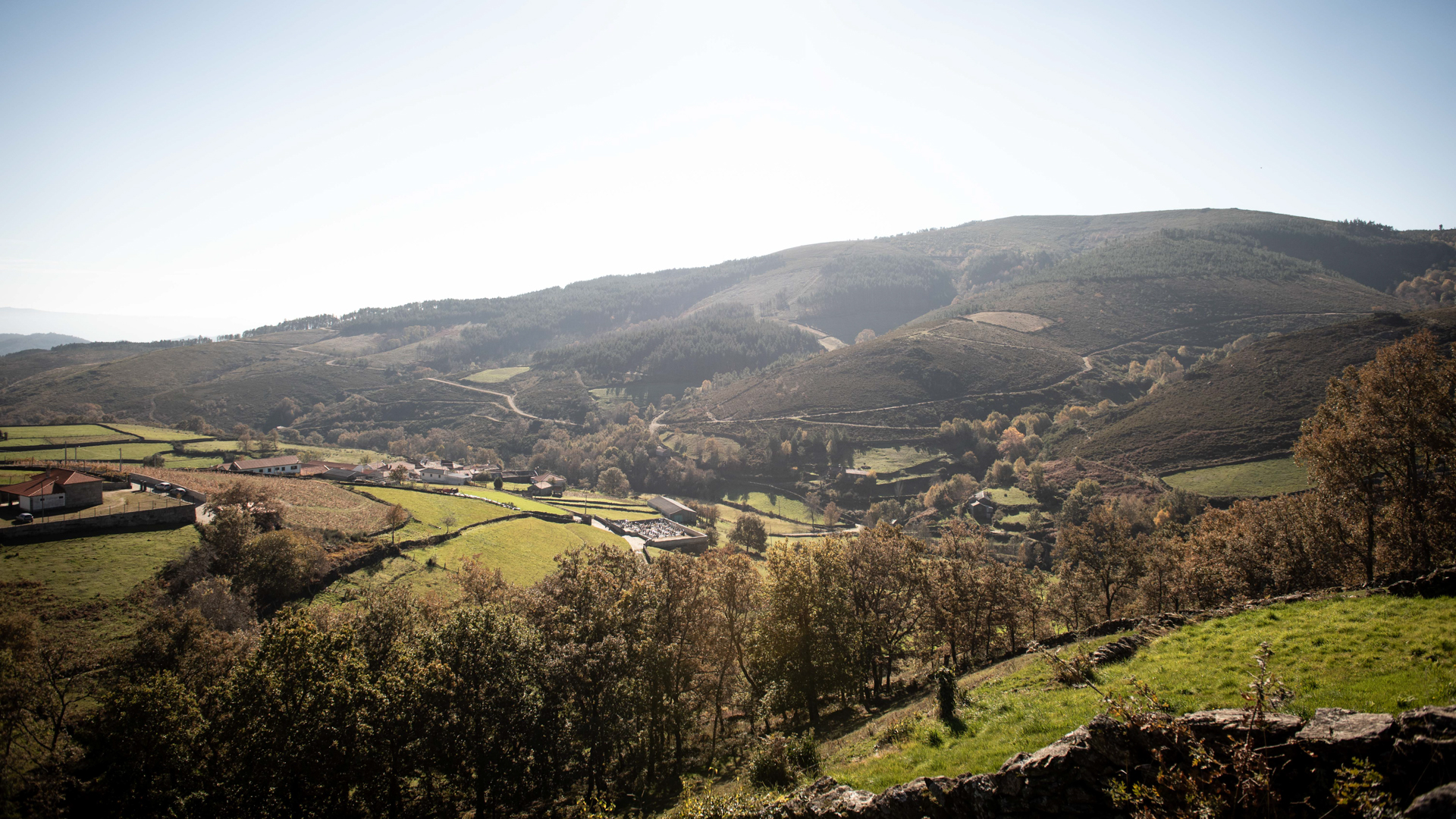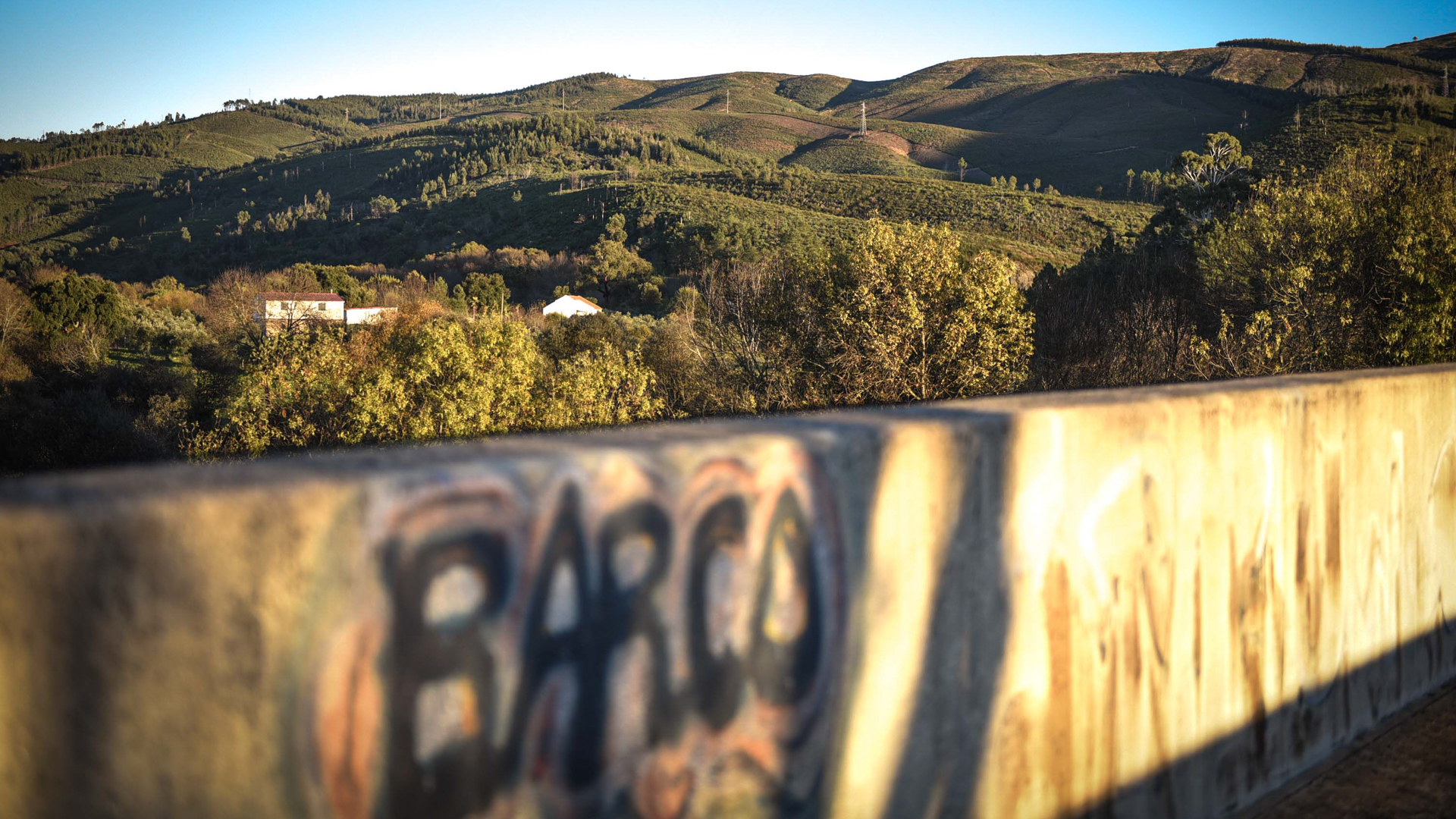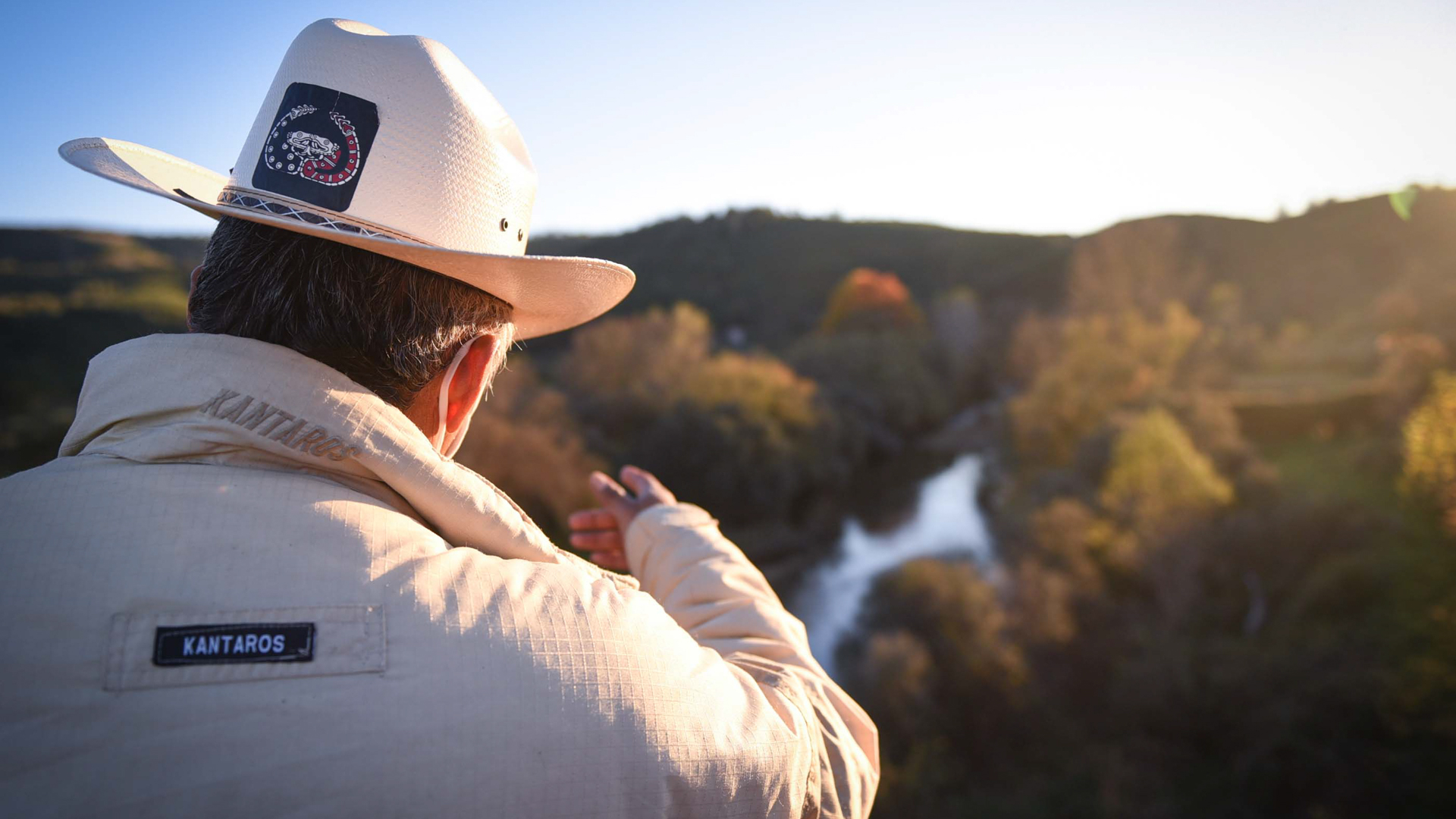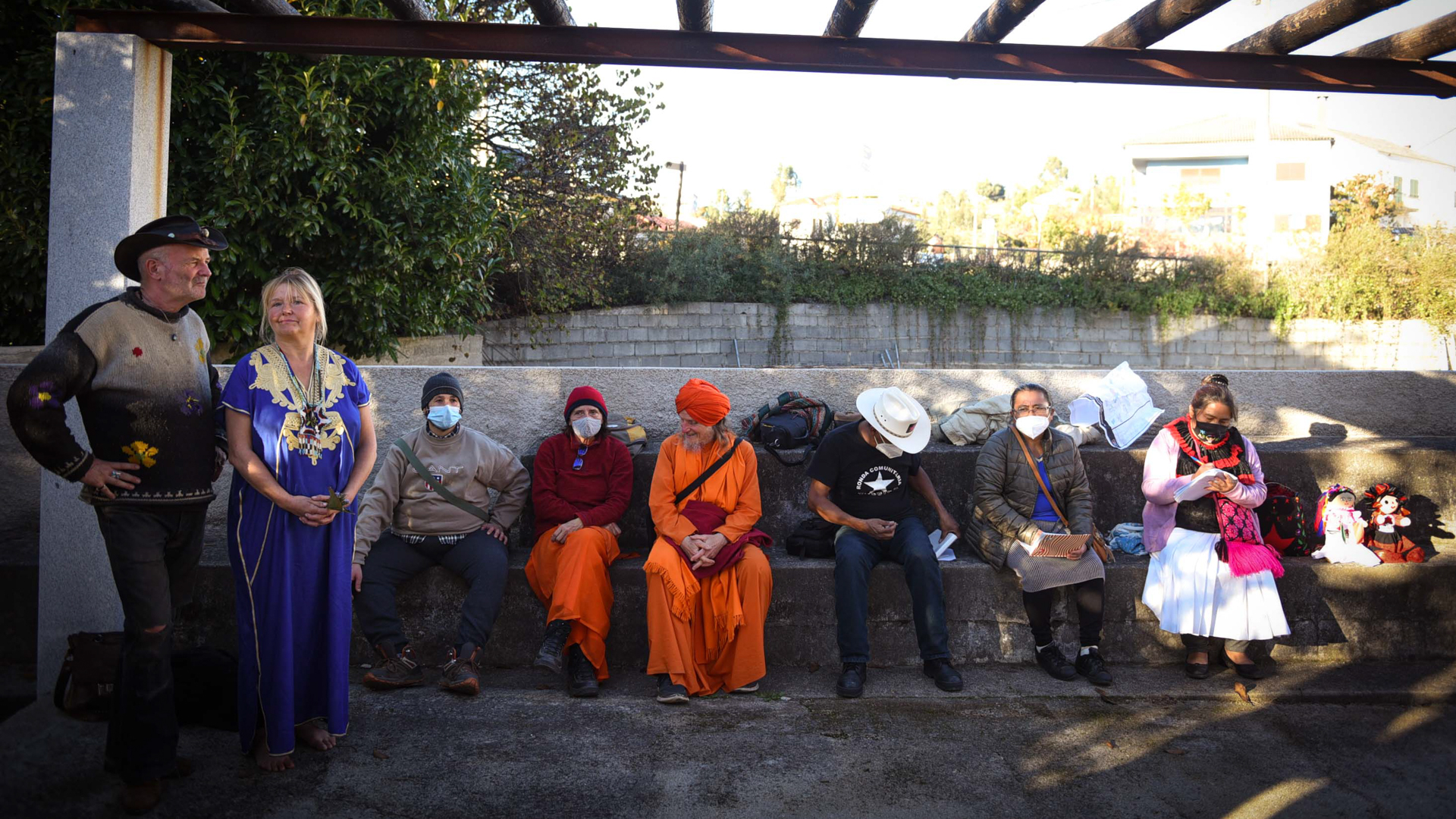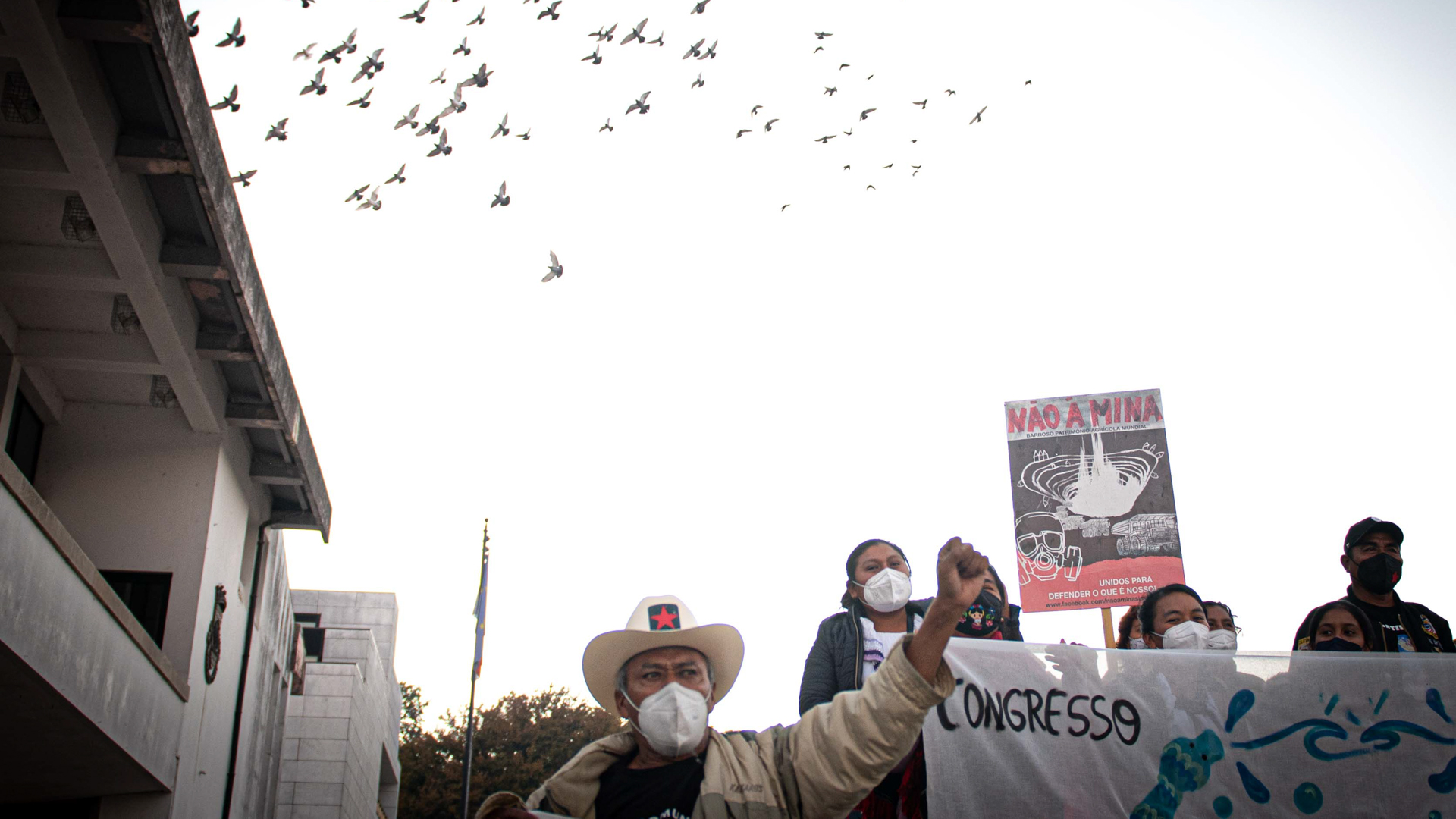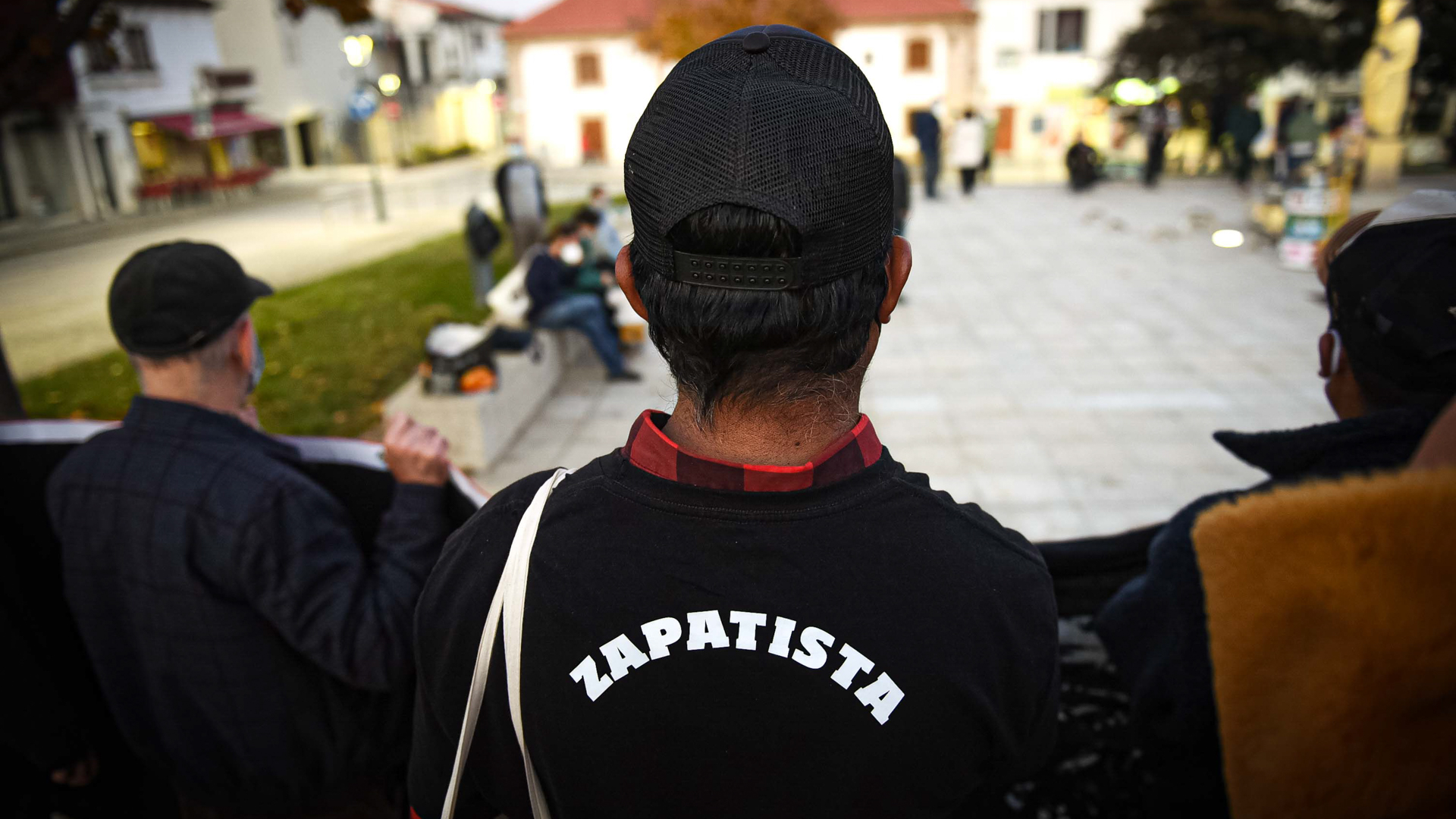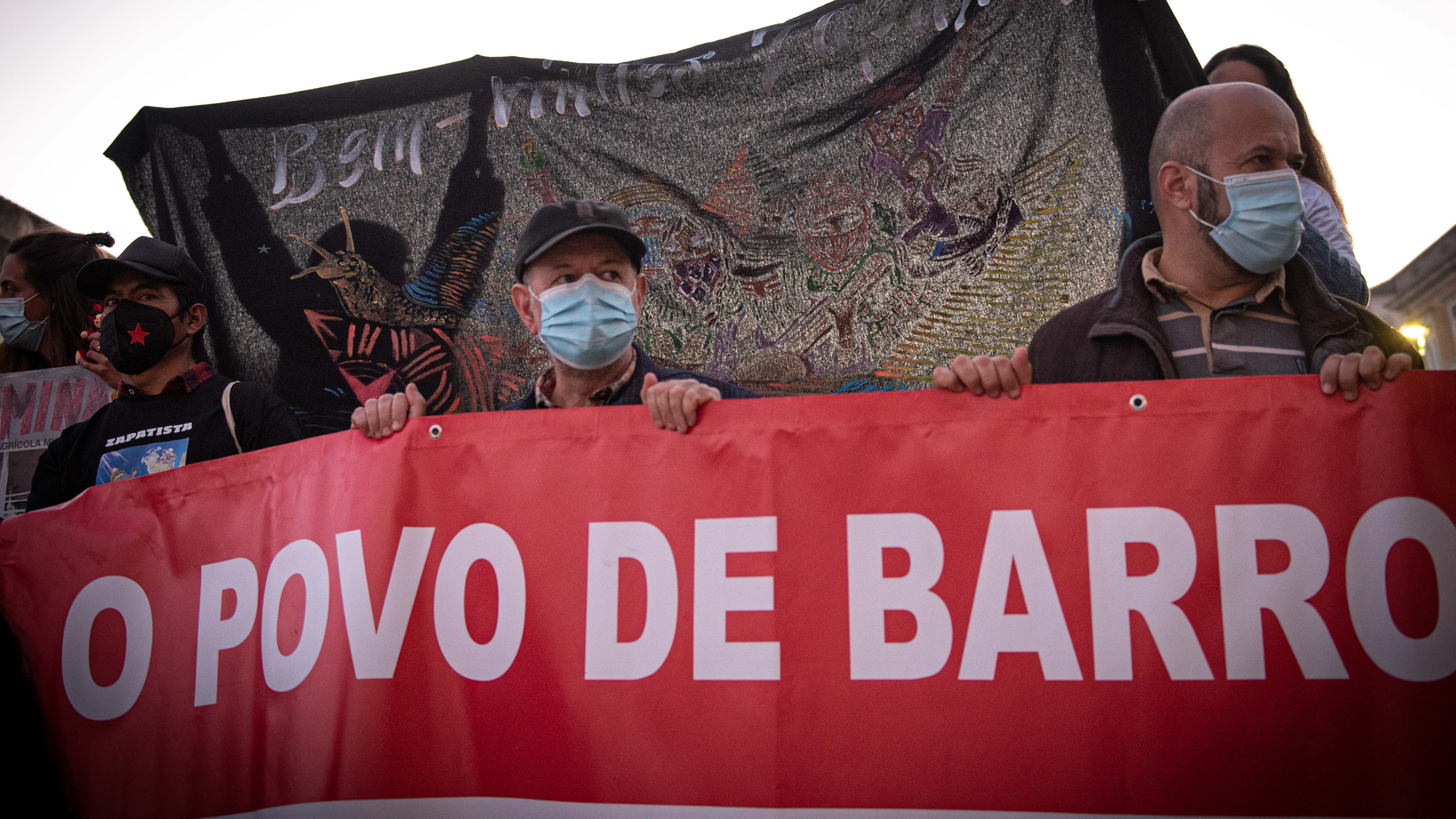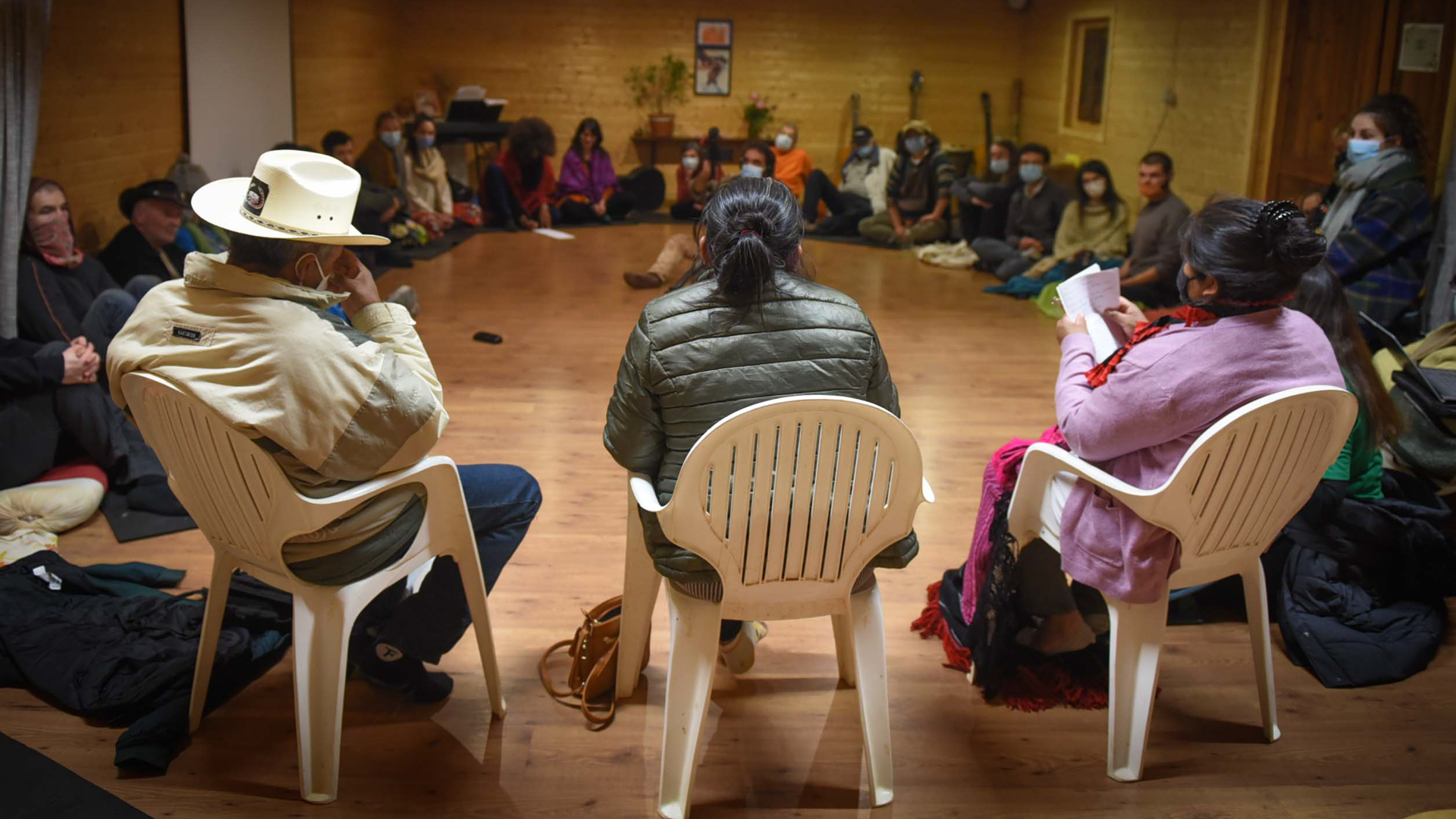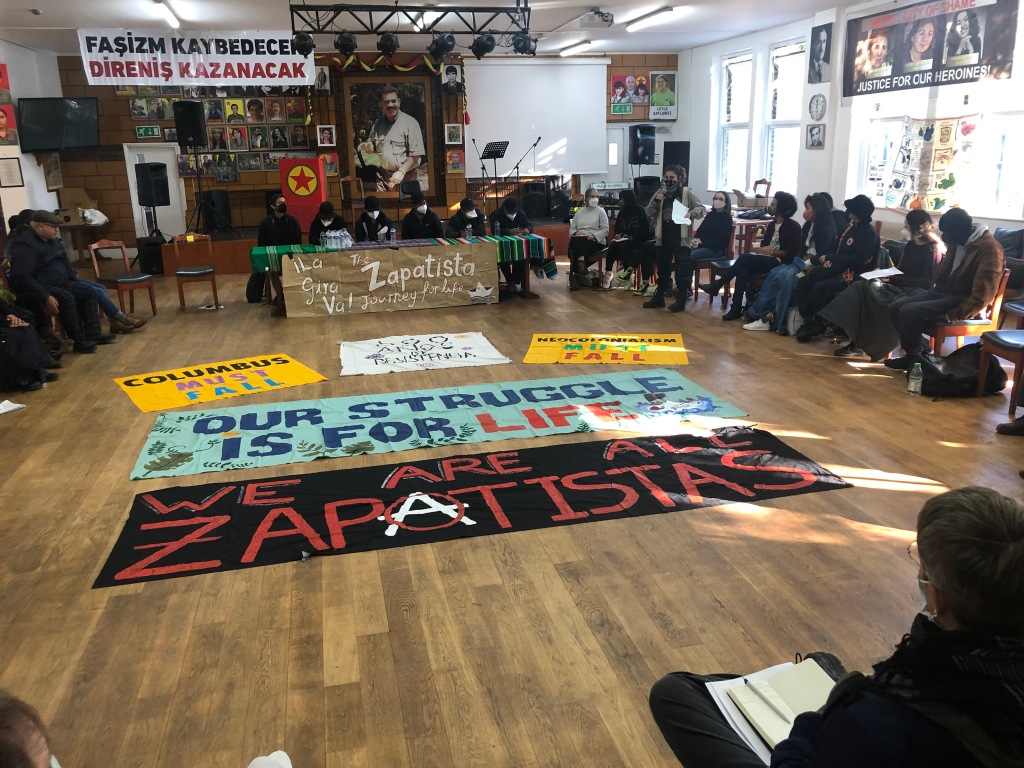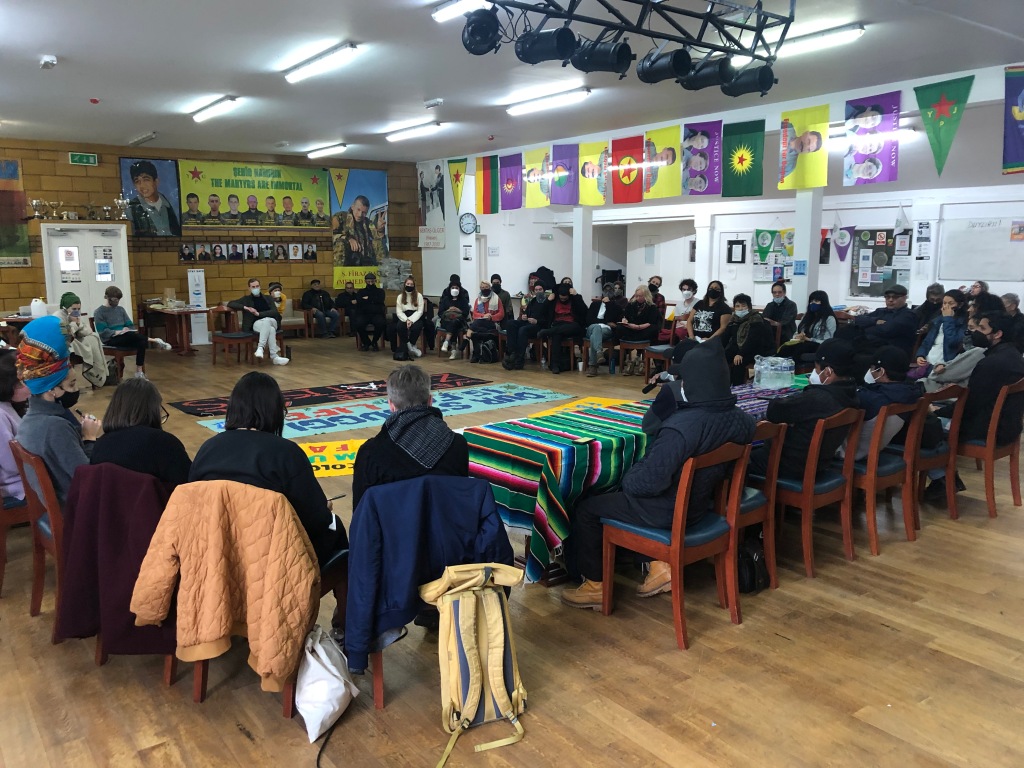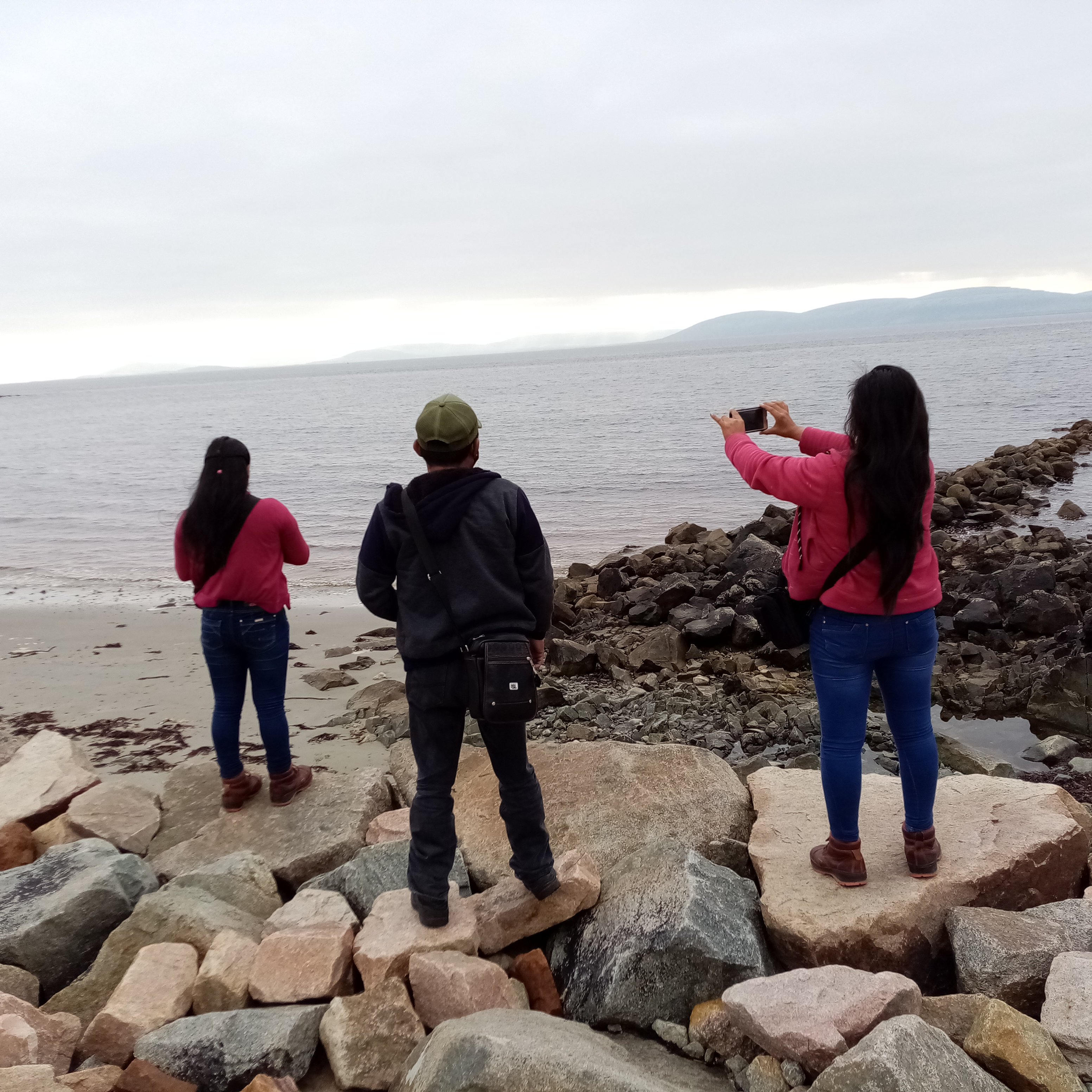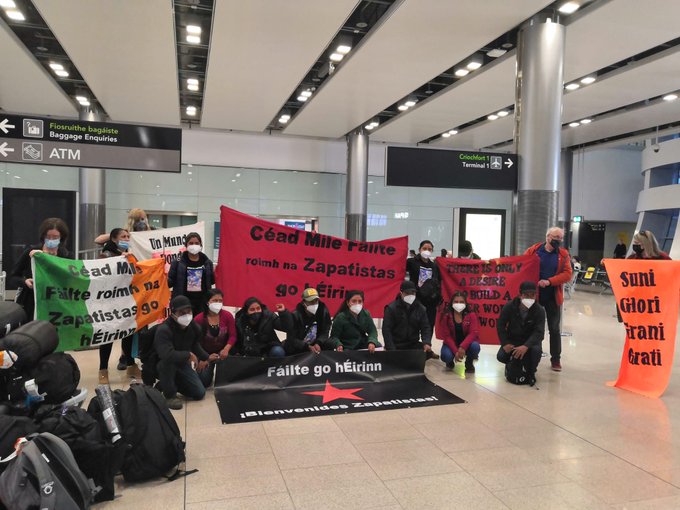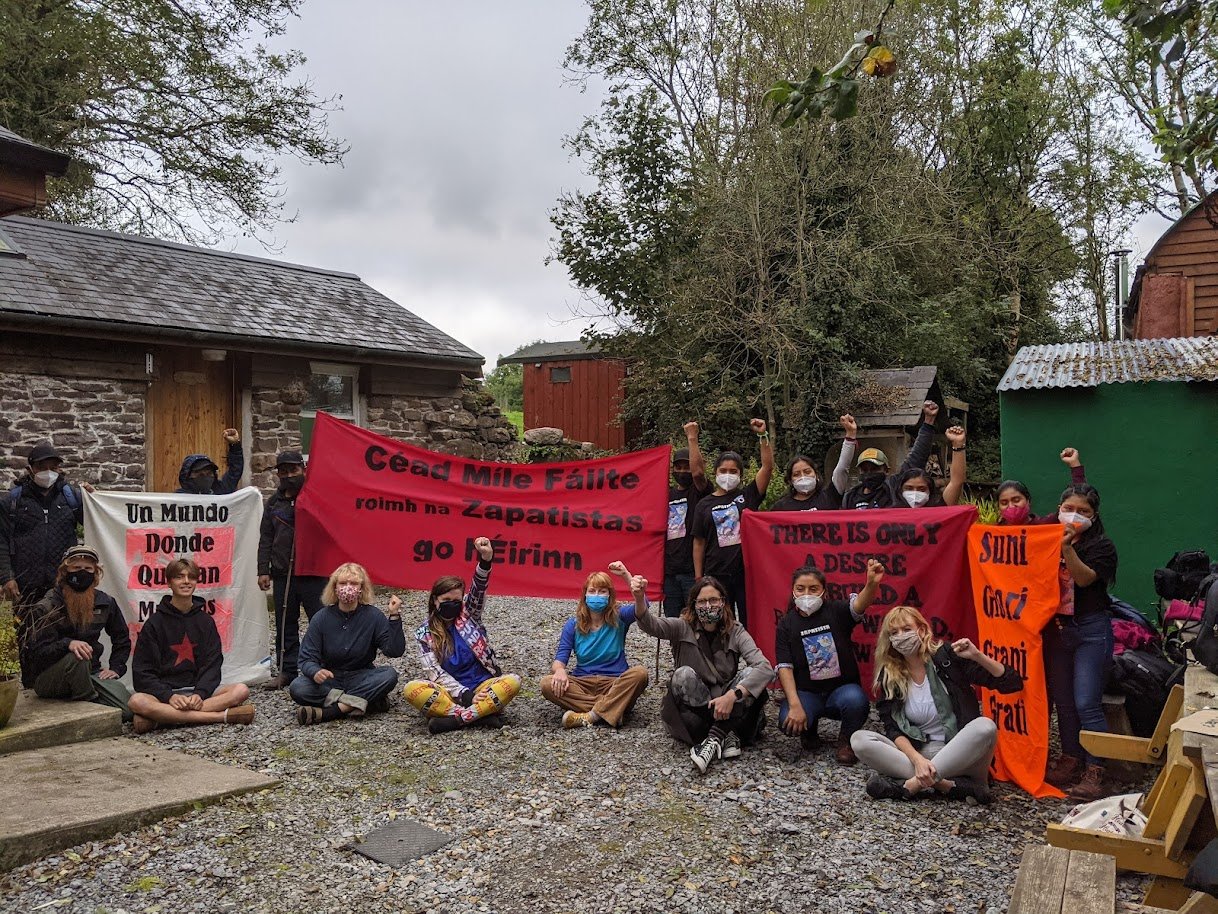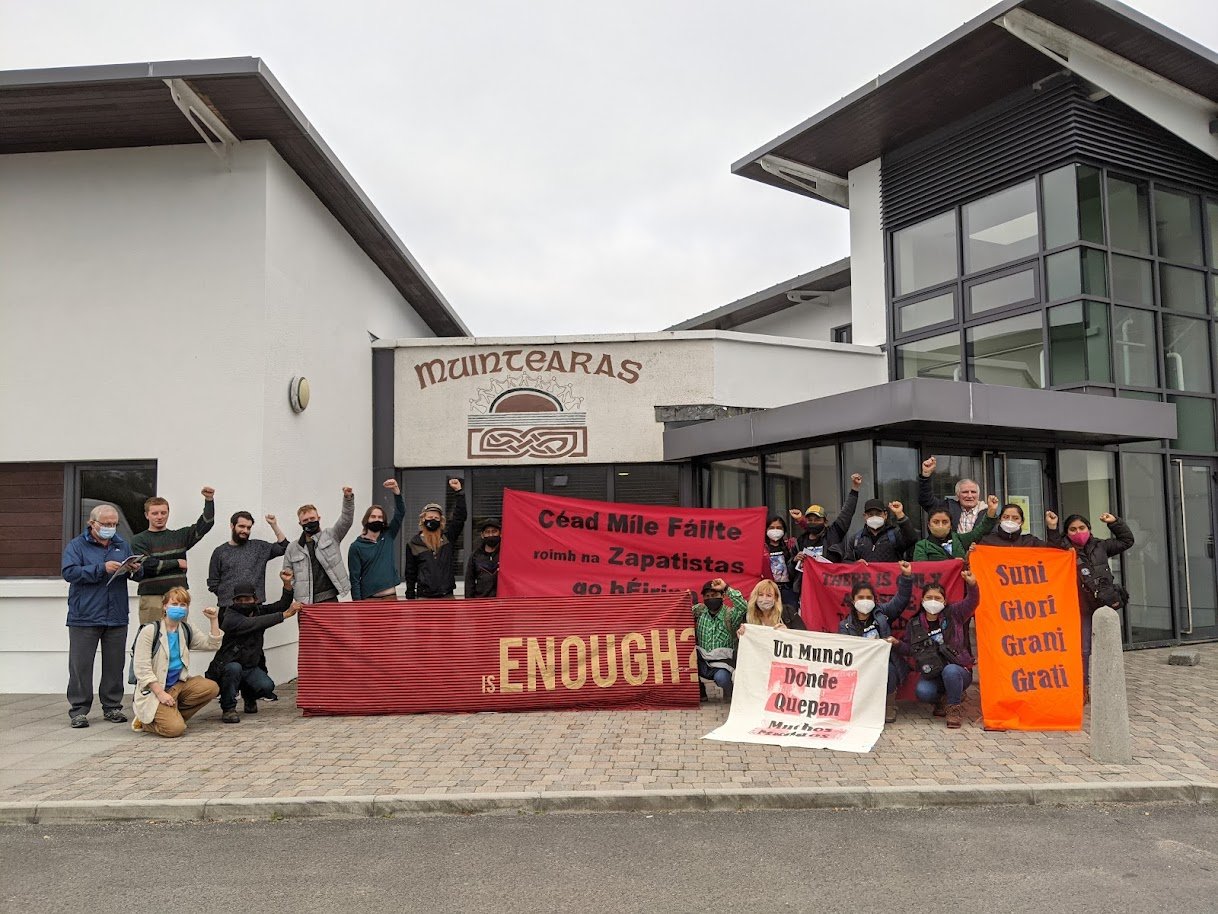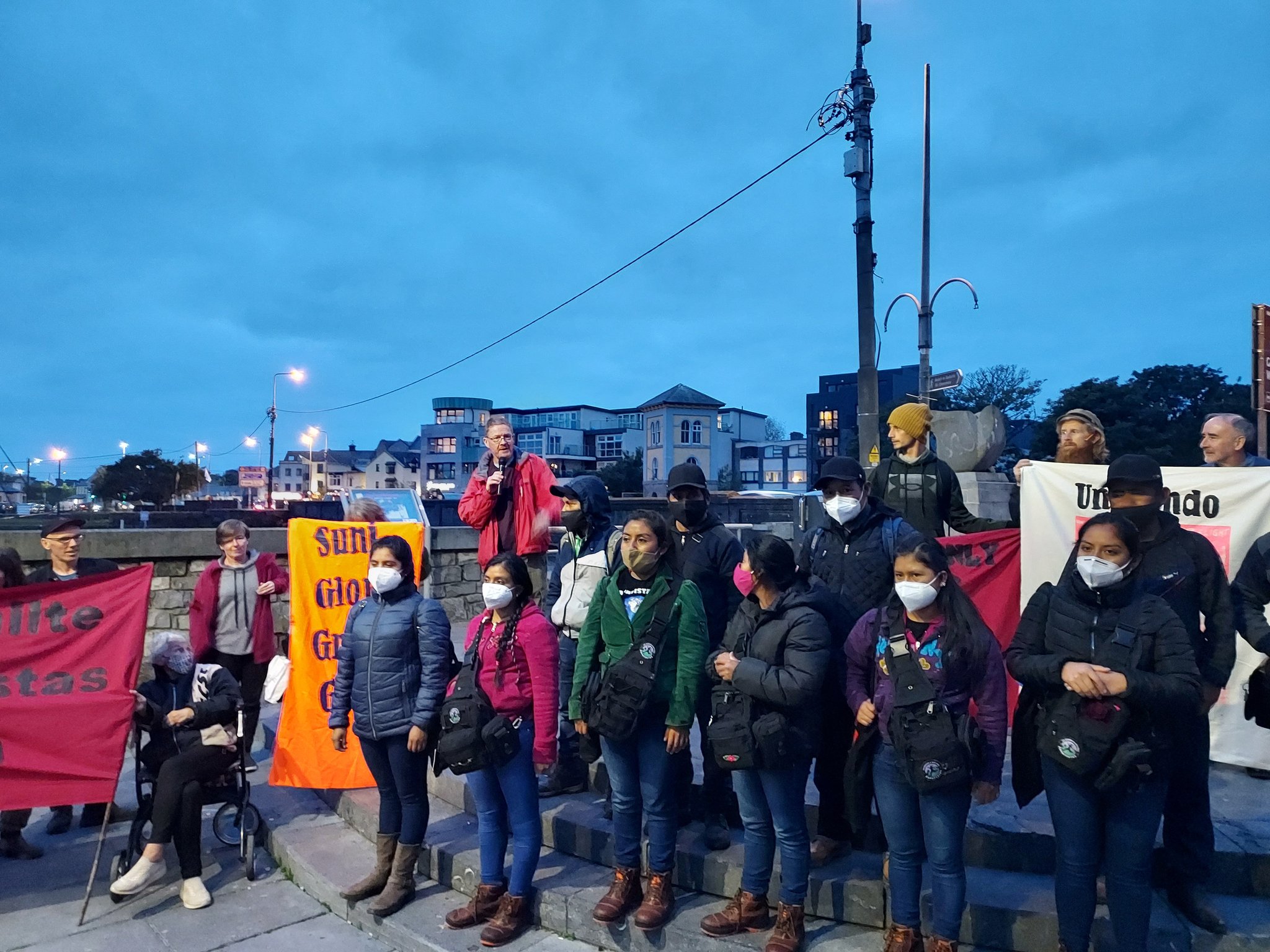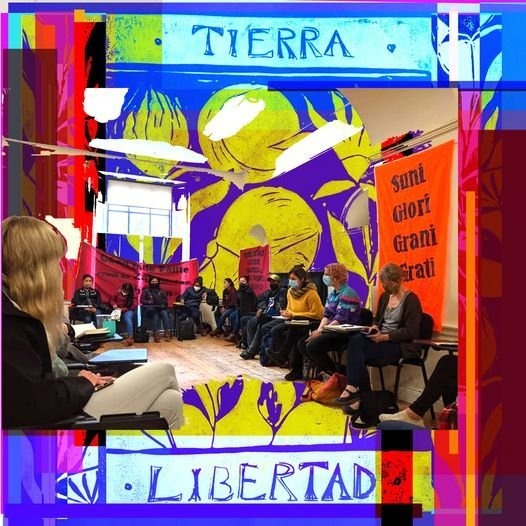by Franca Marquardt
Meeting the Zapatistas
“We have given you the seeds of rebellion against colonialism and capitalism” – this is what the group of Zapatistas that visited us here in Leipzig announced on our last night together. I am still processing this important moment, one that now seems like a dream. But it was quite the opposite, something very real: a coming-together of worlds for the prospect of a global solidarity. The Zapatistas and their resistance against colonial capitalism have been an inspiration to me and to many fellow students and activists. I have never been to Chiapas or studied their political organisation in depth. But when I heard about this “journey for life” and the Zapatistas’ plan to travel to Europe and meet local movements, I was intrigued. As an anthropology student and social activist, I am constantly confronted with the impasse we face in our actions and reflections that are still contained within a limited, Eurocentric framework. Ultimately, a just transition cannot be advanced unless we take into account all voices and perspectives and form alliances between actors across the world. The journey of the Zapatistas, I thought, could be a chance to put these ideas into practice while dealing with socio-ecological issues in a way that considers local fights in a global context and provides the global movement with the most important tool: hope.
In October last year, the Zapatistas announced that they will “colonise” Europe to meet movements here and to listen and share ideas on a better life beyond capitalism. People across Europe have united under the prospect of this important moment, inviting the compass to their cities and towns, eagerly planning and organising their stay. As part of the Leipzig network, we have been meeting weekly, discussing ideas and plans. This was an empowering but difficult process, as it was never clear if or when the Zapatistas would actually arrive and what we needed to consider. At some point this summer, we weren’t even sure if the journey would still happen but we acknowledged that they had already archived one of their main objectives: motivating people and groups to get organised in their own “homes” and form alliances for change. It was even more amazing when we heard that the first delegation, the squadron 421, had set sail and finally arrived in Spain this June.
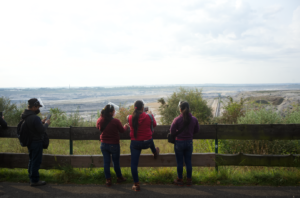
The first group was made up of seven compass who then went ahead to coordinate the arrival of the main delegation, together with local structures. This would turn out to be a difficult process, entailing struggles to obtain passports and visas, as well as restrictions caused by the ongoing covid crisis. This was representative for the mobility restraints that many marginalised and racialized people face when trying to enter European countries. Back in August we protested in front of the Mexican honorary consulate in Leipzig, to put pressure on authorities and make people aware of these facts. It was even more ironic when we found out that the consul is the CEO of Porsche Leipzig – not surprisingly he ignored our demands. Later this summer I participated in the climate camps in Leipzig and in Munich, where I held workshops on the topics of Zapatism, degrowth and pluriversality. I engaged in discussions about how we position ourselves as climate activists in Germany, and how we can relate our histories and struggles to those of the Zapatistas, the Rojava Kurds or to many smaller resistance movements that are ongoing.
Following the Munich camp, finally, the main delegation of 170 compass arrived in Vienna (out of all places) in mid-September. This all happened very fast and required people to work together to support the Austrian network, trying to organise accommodation and facilitate the arrival last minute. The atmosphere at the airport was very powerful, as we celebrated and sang songs to welcome the compass. Meeting them after all these months of anticipation and struggles was unbelievable, and an important source of hope. From this moment on, people were working day and night to plan the next steps of the journey. It was then decided that the compas will travel in groups of five to different regions across three stages. So, on the 22nd of September we welcomed two groups in Leipzig that stayed with us for a week, taking part in many events and encounters with local movements. Somehow, we managed to pull together a program, found local housing projects for them to stay in, and cook food. To our surprise, they preferred sausages, pizza and coca cola to pumpkin and rice – another proof that we cannot translate our moral standards onto different people’s contexts. As the compass made clear, the main objective of the journey was to meet with local movements in an intimate setting, rather than to speak at public events or lectures. Hence, we organised meetings with feminist organisations, postcolonial groups and the Latin American community in Leipzig alongside visits to significant places of resistance in and around the city.
The program was very strict, as the compass told us they wanted to meet as many groups as possible and focus on the “work” (after all, they were on a mission). Before coming to Europe, all delegates have been trained for months, thus knowing exactly what they wanted to share and what questions they wanted to ask. They told each group a detailed version of their history, starting way before the uprising in 1994, stressing the centuries long oppression that formed the basis of their resistance today. They also described their worldviews that are rooted in the indigenous identity and how this translates into their political and social organisation today. The compass was interested to hear about the history of Germany, especially Nazi Germany and the significance of the wall and eastern Germany. They stressed that each person’s history is important as their indigeneity is rooted in their interactions with their families, communities and the environment. The Zapatistas also asked many questions about how each group operates, how they are organised and how they sustain themselves. Communication wasn’t always easy, as everything had to be translated between Spanish and German, and two delegates only spoke the indigenous language Tzotzil.
My favourite moment was the visit to Pödelwitz, a town that used to run the risk of being evicted for coal mining. The compass took time to tell people about their history, their political organisation and their current struggles. They also listened to the residents’ accounts of their resistance and the oppressive consequences of coal mining industries in Germany, that have been a centre of environmental activism for several years. At the same time, another group of compass was visiting Lützerath, a town in the West of Germany that still runs the risk of being evicted. This way, I could feel the impact that the journey was making on many levels, by supporting these struggles and by providing hope and inspiration for people resisting and fighting for their rights in these places. As part of the organising network, I was lucky to witness some moments outside of these encounters that were even more insightful and sometimes surprising. It was beautiful to see how the compass interacted with people and the environment, as this was the first time that they left Mexico and were exposed to a different world. They were taking many pictures on their phones, of as the woods, the chestnuts, or the wild pigs in the forest. Being present in these moments made me rediscover some curiosity about the place I live in and reminded me to notice the small things that are so often overlooked while rushing through life.
So, what is it that we can learn from the “journey for life” and the initiative of the Zapatistas? Is this the start of something more powerful, a realisation of the interconnectedness of our lives and our struggles? How can we carry this seed further and combine local efforts and global alliances against social and environmental injustice?
Histories of resistance
Engaging with the Zapatista movement in its many forms, helps us understand the significance of colonial capitalism and how this relates to postcolonial subjects and social movements. It links historical issues of colonial dispossession and racism to contemporary global capitalism, while foregrounding the importance of transnational solidarity between actors worldwide. Since the 1980s, the Zapatistas have worked towards recovering land in resistance to the hegemonic growth of capitalism, to counter their oppression and to advance the project of autonomy and self- determination of Indigenous communities. The geo-political revolution in 1994 enabled radical democracy and egalitarianism through the temporary secession of the Mexican state. Thus, it represents in certain ways a successful fight against neoliberal capitalism and the creation of a postcolonial landscape. Since 2012, the Zapatistas and the CNI have initiated a process to share the issues and insights of Indigenous communities throughout Mexico into the national political sphere and popular media. This process of opening up and becoming more engaged within wider contexts, is also represented by the 2017/18 presidential elections, where for the first time an indigenous woman, Marichuy, took part as a candidate. The candidacy was not about winning elections, but about pointing out the triple impossibility of a poor, indigenous and woman president in the imagination of Mexican society and exposing the underlying racism and sexism. The Zapatistas have inspired and enriched the global struggle for climate justice and peace while reactivating and uniting struggles from the “left and the bottom”. Now, the journey in 2021 makes sense as the process of “coming out of their shells”, where members of the Zapatistas are actively fighting back against worldwide neo-colonial and capitalist oppression by showing their support for local groups across the world that share similar struggles.
Towards a decolonial praxis?
The Zapatistas stress how 500 years of indigenous dispossession led to this system of neoliberal control and exploitation. Their resistance and autonomy as a decolonial praxis, thus, is a productive lens to understand the contribution they make in challenging the mantra that there is no alternative to neoliberalism. According to the Zapatistas, their journey represents an antithesis to the “encounter” between European colonisers and indigenous populations in the Americas, as this time the indigenous people are “colonising” Europe. This juxtaposition of taken-for-granted history opens up a space for different agencies that are at play in drafting a just transition, and highlights the imperative of recognising perspectives by postcolonial subjects and oppressed people in many places.
It also provides an important reflection on the normative framings in Western academia that are deployed when discussing indigenous movements, or anti-capitalist transition ideas. For example, how can “degrowth” incorporate impulses and critiques from the global south into its blueprint for a just transition? How can we relate different worldviews and approaches while respecting their epistemological and cultural embeddedness?
What the Zapatistas remind us, is that decolonisation should, first and foremost, begin at “home”, within our own epistemological traditions and institutions. The meeting between the Zapatistas and European actors is, in a way, exemplary for the imperative of connecting different lines of thought that originate from different epistemic traditions and contexts. This way, it is an important starting point for sketching out ideas on pathways for social and economic change, to find out what agencies and tools are needed. Discussing decolonial degrowth perspectives in relation to the struggles of the Zapatistas and other indigenous and Southern-based movements is important to be able to grasp the depth of a just transition. It also provides a perspective on the value- based and ethical dimensions of the discourse and expressions of resistance to colonial capitalism. Inspired by the Zapatistas’ striving for “a world where many worlds fit”, multiple worldings and practices need to inspire the collective search for a socially just and ecologically stable world. If concepts only include one part of the population and essentialise others, they continue a cycle of systemic violence. Thus, in a carbon-constrained world, we must all work together for the same ends, but in pluriversally different ways that avoid this violence.
Towards a global solidarity?
Engaging with the Zapatistas’ embrace of values such as dignity, trust and autonomy, and their experience in the political organisation of grassroots democracy can be a starting point of building global solidarity as a viable agenda for a just, socio-economic transition. Through listening to each other’s histories and stories, actors are affirmed in their struggles, as they realise how people across the world are concerned with similar issues, in different ways.
This horizontal interaction between actors entails an emancipatory process of restored indigeneity and self-determination. In their communiques and speeches, the Zapatistas highlight the importance of relating their claims to oppressed and marginalised people everywhere (the poor, the women, the racialised). In this way, they construct a global consciousness that recognises the grievances and hopes of people worldwide as deeply intertwined. “Relating” as a value is antiracist and anti-essentialist as it defines identities according to a relation, rather than to a “root identity”, which is a tool for seclusion. Inspired by Glissant’s “poetics of relation” we might want to think about a relational conception of human existence as a tool to counter the West’s imposition of universalist values. As the Zapatistas always foreground, “we are equal because we are different”. Hence, we need to move from the conception of difference as a source of conflict, to difference as an implicit tool for the remaking of the word, making space for “a world where many worlds fit”. Difference and diversity should be a core principle of our discourse and actions rather than an “add on” or separate category.
Our contacts with people, groups, collectives, movements and organizations from different parts of the planet have shown us a diverse, multiple and complex world. This has reinforced our conviction that any proposal of hegemony and homogeneity is not only impossible, but above all criminal. (communiqué June 2021[1])
It is essential that environmental movements in the north create alliances with anti-imperialist struggles in the global south who have been focused on these issues for decades. As the only successful social movements for serious economic and social change have been the anti- colonial movements, that should be the force we need to mobilise around. Instead, during COP26 in Glasgow right now, “leaders” continue making empty promises while marginalising the voices of many from the global south and those oppressed within society, that know best what needs to be done in their communities to fight climate change and inequality. Although many activists made their way to Glasgow to challenge “business as usual”, the voices of women, of the poor, of racialised people continue to be side-lined, while the powerful leaders of the neoliberal world order (politicians and billionaires) take centre-stage. It is clear, that this can hardly lead to any lasting change in the struggle to protect our earth, our communities and ensure wellbeing for all. Hope can only be found outside these “official spaces”, at alternative gatherings, protests and meetings that emerge from the common frustration of those excluded from these events. The Zapatistas (actually the same group who was in Leipzig) visited Scotland right before the conference. By meeting with many local groups and communities, they affirmed actors in their struggles. In some ways, these encounters and actions are much more lasting than those commitments made at the summit.
The Zapatista worldview is in constant conflict with the interests of the industrialised world, which strives for “progress” and “growth”. Because colonial capitalism is operating globally, we also need to resist collectively and globally. This entanglement of global capitalism can be seen in the plan of the current megaproject “Tren Maya”. In Yucatan, Mexico, a 1500 km long railway line is to be built to boost tourism in this Mayan region. The project would cause the destruction of one of the last rainforests in southern Mexico, disregarding the rights of the indigenous population. It leads to land grabbing and displacement as well as additional militarisation in one of the most conflict-ridden regions of the country. German capital and German companies are also involved in the planning, construction and commissioning, with DB Consulting & Engineering, SIEMENS and TÜV Rheinland, as well as the German arms industry. The Deutsche Bahn markets itself as an ecological company and means of transport, yet the company repeatedly participates in neo-colonial projects that destroy ecosystems and livelihoods of people. On the 30th of October we protested for #NoAlTrenMaya in front of the Leipzig central station and many other locations across the world. This would not have been possible without the solidarity and mobilisation by the Zapatistas and exchanges throughout the journey.
What about you?
Through the “journey for life” and the encounter with the Zapatistas, we move beyond the space of resistance, illuminating spaces of possibility. At the same time, we need to build our own narratives and imaginaries of a better life, that are rooted in our own indigeneity and are enriched through relationality between plural experiences and actors. While practices of conviviality and care are ancient, they are also re-emerging and evolving as a part of a mosaic of movements that are struggling against neoliberal oppression. In Europe, people struggle to identify with their indigeneity, as neoliberalism pushes for an individualistic conception of the self and the environment. However, indigeneity simply means living in harmony with our ecosystems that we are embedded in and acknowledge our world beyond the simply human to break with the nature/culture divide. We need to acknowledge that indigenous ideas are still present and cannot be easily erased as they have existed for ten-thousands of years in comparison to the relatively new concept of the ‘West’. This also includes a different conception of time, as life plays out in a circular rhythm of a resurgence of indigeneity, rather than in a linear process from birth to death. While it is impossible to reproduce ideas from the Zapatistas and apply them to local contexts in Europe, a confrontation with their worldviews can inspire us to search for commons and leftover indigenous practices in our surroundings. For example, there is a resurgence of solidary agricultures (Solawis) in Germany that can be identified as sources outside of capitalist logic and thus as some forms of indigenous commons. This can be a source of hope and strength for dealing with the familiar and the “everyday” as a basis for resistance and for social mobilisation.
Soon there will be another megaproject or event that will demand a collective protest and resistance from the left and the bottom across the world. While the first chapter of the “journey for life” is soon coming to an end, the Zapatistas have encouraged us to keep questioning, to keep fighting and to keep hoping for a better world. It is down to us to plant the seed of resistance and keep these visions alive.
‘Is Zapatismo one more grand answer to the problems of the world?
No. Zapatismo is a bunch of questions. And the smallest can be the most disturbing:
And you?
In the face of the capitalist catastrophe, does Zapatismo propose an old-new idyllic social system which would repeat the imposition of hegemonies and homogeneities now deemed “good”?
No. Our thought is small like us: it is the efforts of each person, in their own geography and according to their own calendar and customs, which will perhaps allow the liquidation of the criminal and, simultaneously, the remaking of everything. And everything is everything.’ (communiqué June 2021)
Franca Marquardt is part of the Department of Anthropology at the University of Leipzig, Germany. She tweets as @FrancaMarquardt
References
Escobar, A. (2018). Designs for the pluriverse: Radical interdependence, autonomy, and the making of worlds. Duke University Press.
Glissant, É. (1997). Poetics of relation. University of Michigan Press.
Khasnabish, D. A. (2013). Zapatistas: Rebellion from the Grassroots to the Global. Zed Books Ltd.
Nirmal, P. and Rocheleau, D. (2019). “Decolonizing degrowth in the post-development convergence: Questions, experiences, and proposals from two Indigenous territories.” Environment and Planning E: Nature and Space 2(3) 465-492.
Olesen, T. (2004). Globalising the Zapatistas: from Third World solidarity to global solidarity?. Third World Quarterly, 25(1), pp.255-267.
For a list of all communicados: https://radiozapatista.org/?page_id=3365&lang=en
http://enlacezapatista.ezln.org.mx/
[1] Members of the Zapatistas have shared ‘communiques’ to the public since the announcement of the journey in the summer of 2020. This way, they regularly give updates on their visions and the meaning of the journey. English versions can be found here: https://radiozapatista.org/?page_id=3365&lang=en
